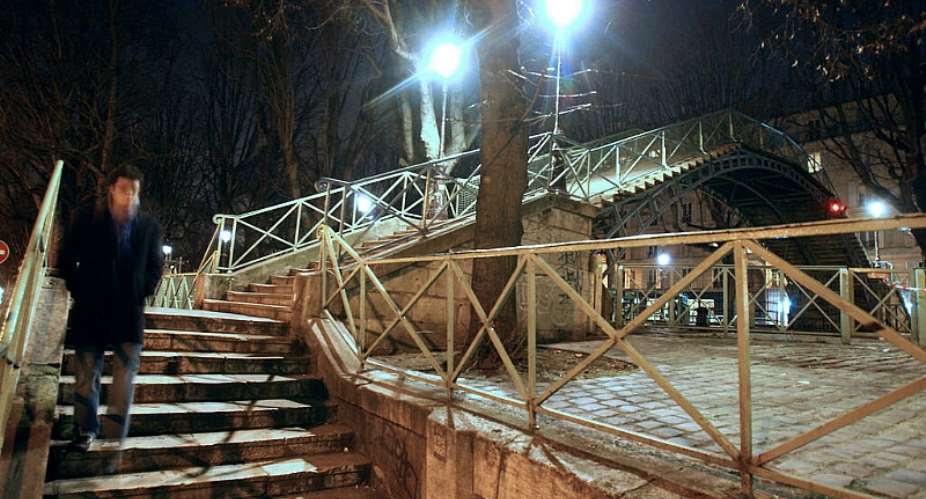A study has revealed that 95 percent of people living in the Paris region find the City of Light to be, well, too shiny. The vast majority of people surveyed said they'd like to see the “invasive” night-time city lights turned down, while there's also talk of switching some lights off altogether.
Carried out by the Paris Region Institute from April to July 2021, the public street light study questioned 2,778 residents of Paris and the Île-de-France region surrounding the French capital.
While tougher regulation has forced a decline in bright shopfront signs, public street lighting is actually gaining ground.
"The number of light points has increased by 85 percent in 25 years," Nicolas Cornet, an ecologist at the Paris Region Institute, told Le Parisien newspaper.
"With the arrival of LEDs, which are more economical, many local authorities are adding lighting where there was none before.”
While the renovation of street lighting has reduced the electricity bill for many communities, France's Ministry of Ecological Transition described the excess of artificial lighting as “a waste of energy”.
It also said such lighting was a source of disturbance for biodiversity, modifying the prey-predator system, while disrupting reproduction cycles.
Invisible stars
Eight-two percent of Parisians said the omnipresence of light was preventing them from seeing the stars. Brighter stars could be partially seen at times, but many nights did not permit any star-gazing at all, they regretted.
However the main complaint by respondents was the fact that public night lighting was shining into their bedrooms.
- France increases gas tariffs but promises no further hikes before April 2022
- 'The battle is not over': French workers protest over cost of living, reforms
While 83 percent said they were bothered by this, nearly 65 percent said they suffered negative health ramifications because they were unable to sleep.
The Paris Region Institute said its study was necessary to determine the link between public light and social issues including health, energy, the night-time environment and the impact on biodiversity.
It follows a report in May 2019 by the National Agency for Health Security, which highlighted the biological impacts of light on human health and its impact on circadian rhythms – which it said required a significant intensity of light during the day and total darkness at night”.





 Lay KPMG audit report on SML-GRA contract before Parliament – Isaac Adongo tells...
Lay KPMG audit report on SML-GRA contract before Parliament – Isaac Adongo tells...
 Supervisor remanded for stabbing businessman with broken bottle and screwdriver
Supervisor remanded for stabbing businessman with broken bottle and screwdriver
 NDC watching EC and NPP closely on Returning Officer recruitment — Omane Boamah
NDC watching EC and NPP closely on Returning Officer recruitment — Omane Boamah
 Your decision to contest for president again is pathetic – Annoh-Dompreh blasts ...
Your decision to contest for president again is pathetic – Annoh-Dompreh blasts ...
 Election 2024: Security agencies ready to keep peace and secure the country — IG...
Election 2024: Security agencies ready to keep peace and secure the country — IG...
 People no longer place value in public basic schools; new uniforms, painting wil...
People no longer place value in public basic schools; new uniforms, painting wil...
 'Comedian' Paul Adom Otchere needs help – Sulemana Braimah
'Comedian' Paul Adom Otchere needs help – Sulemana Braimah
 Ejisu by-election: Only 33% of voters can be swayed by inducement — Global InfoA...
Ejisu by-election: Only 33% of voters can be swayed by inducement — Global InfoA...
 Minority will expose the beneficial owners of SML, recover funds paid to company...
Minority will expose the beneficial owners of SML, recover funds paid to company...
 Prof. Opoku-Agyemang has ‘decapitated’ the NPP’s strategies; don’t take them ser...
Prof. Opoku-Agyemang has ‘decapitated’ the NPP’s strategies; don’t take them ser...
